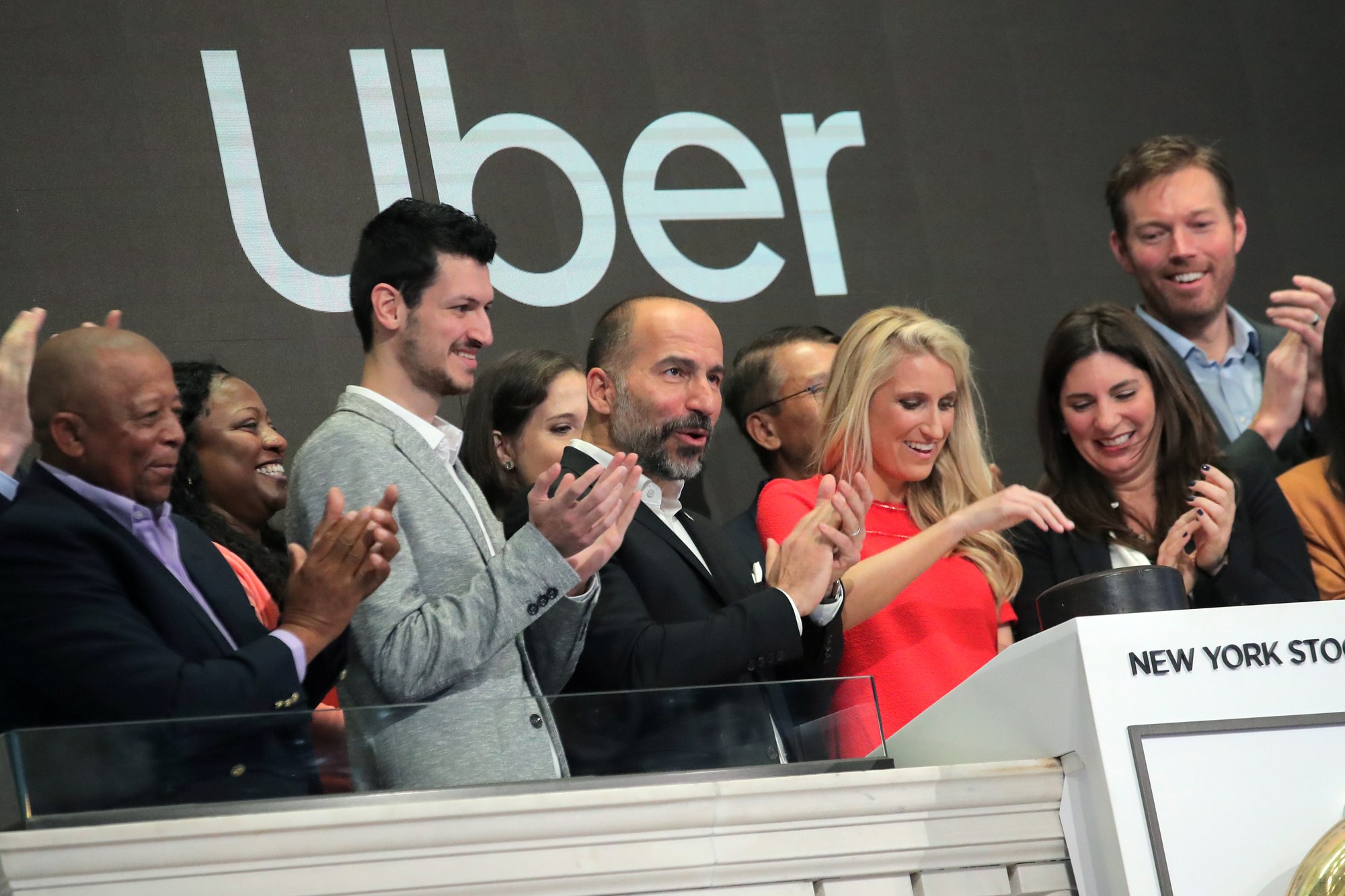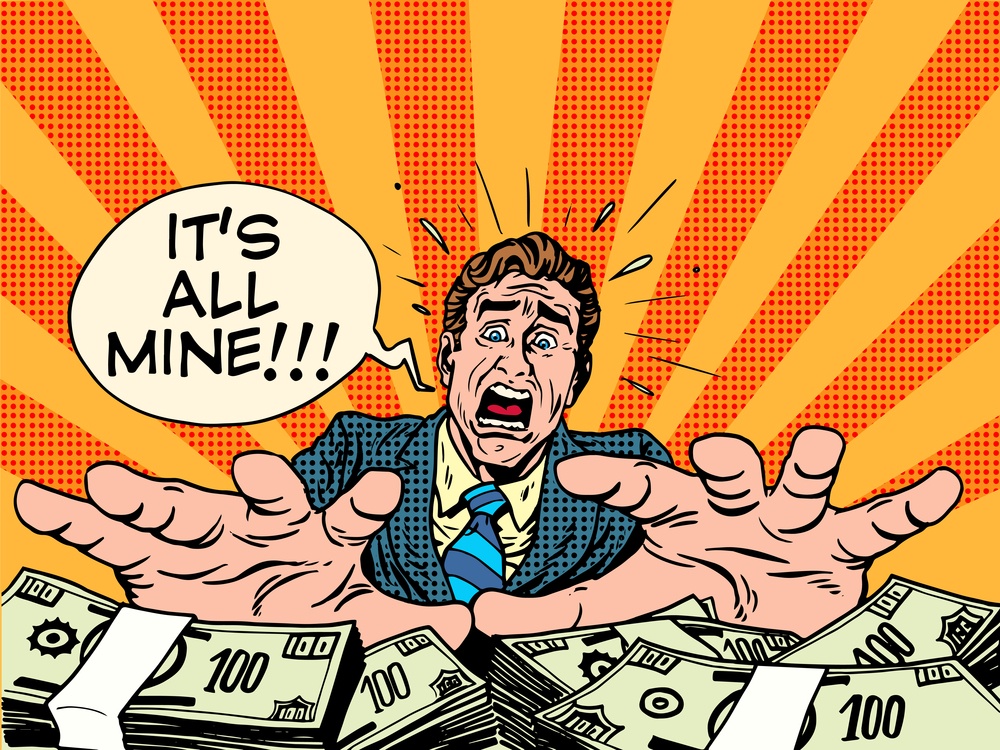Why Millennials Suck at Buying Stocks

TD Ameritrade's data shows that the dumbest investors are Millennials. They invest in the riskiest stocks, and don't even know why. | Source: Shutterstock
Every month, TD Ameritrade puts out a proprietary behavior-based index based on the stock trading behavior of its clients, called the Investor Movement Index , or IMX.
There are some critical pieces of data to come out of the IMX, the most important of which is that Millennials apparently have no idea how to buy stocks or build a proper long-term diversified portfolio.
Research Proves Millennials Are Drunk on Risky, Low-Performing Stocks

We would expect to see different demographics buy and sell different stocks for their portfolios because every age group tends to have different wealth-directed goals.
For example, we would expect senior citizens to buy more income-generating equities, while those in the 30 to 65 age range would have a more balanced mixture. We would expect Millennials to tilt more towards growth stocks.
What TD Ameritrade found is that Millennials are taking on enormous amounts of risk by purchasing some of the most volatile names in the market, and failing to construct long-term diversified portfolios that are also geared to hedge risk.
In short, Millennials suck at buying stocks.
Cannabis Stocks Headline a List of Terrible Choices

In August, TD Ameritrade’s IMX says that Millennial accounts brought two major cannabis names: Aurora Cannabis and Canopy Growth Corporation.
Marijuana stocks were all the rage in 2018, driven by the explosive short squeeze in Tilray. That stock exploded from $30 to $200 in a matter of days, and everyone started piling into pot.
The problem with most of these marijuana stocks is they have little to no revenue, and are driven entirely by the speculation that weed will become legalized throughout the United States.

What Millennials don’t realize is that cannabis stocks are also likely to become commoditized very quickly.
There is nothing inherently special about marijuana. The only difference is the quality of the weed that consumers can obtain. But as technology improves, and regulators force marijuana growers to adhere to industry standards, it won’t be long before there is very little to distinguish among marijuana quality.
Once marijuana becomes commoditized, prices are going to drop significantly, margins will shrink, and the profitability of the entire sector will implode.
Millennials Piled Into Uber as Insiders Cashed Out

Millennials also bought a lot of stock in Uber, which is now trading at about 20% below its IPO price. The company has been losing billions of dollars, and it continues to be strangled in a price war with Lyft.
As a result, the company continues to subsidize every single ride. That is not a viable profit model. Even worse, it looks like California is going to establish a law that requires the company to reclassify its independent contracting drivers as employees.
That is going to saddle the company with an enormous amount of expense, driving it further away from profitability.
They Bought THAT?
These ill-advised Millennial purchases are part of a long-term trend one can see in the IMX. One of the large positions open by that demographic in July was Chesapeake Energy Corporation .
This energy company has been struggling to regain its footing ever since the oil price crash several years ago. It never really recovered, and its stock price is now below $2.00.

Are Millennials diving into the stock because they sense some kind of value?
Don’t be ridiculous.
Chesapeake Energy is a stock that tends to float to the top of the daily winners or losers category because its low price means any small movement in price equates to a large percentage movement.
Millennials Love Gambling, Not Investing
Millennials are thus attracted to the speculative nature of the investment more than anything else. It’s not like they have some great understanding of the complex energy markets.
If you look at the IMX for June, we see Millennials once again piled into Canopy Growth Corporation, but also Tesla and Beyond Meat. You’ll recall that Beyond Meat had its IPO at that time, and an insane short squeeze also sent that stock to $200.

Tesla is one of the most volatile stocks on the market, and takes wild and unpredictable swings on a daily basis.
In just these three months, it is apparent that Millennials have no idea what they’re doing as far as buying stocks. It is clear that what they are doing is chasing speculation, chasing the hot stock, chasing whatever terrible money-losing company is in the news because its price action is exciting.
That’s gambling, not investing. The same goes for bitcoin.
That’s the critical flaw in how Millennials invest. They chase reward and never consider risk.
It’s All About Risk, Stupid!
I discussed portfolio risk with Ed Butowsky, Managing Partner at Chapwood Capital Investment Management.
He told me a story about a Millennial and a middle-aged family man who each visit two portfolio managers, which I’ll paraphrase.
The first manager tells the Millennial and the family man that he can construct a portfolio that has a 95% chance of returning between -20% and +40% over the long term. The second manager tells them that he can construct a portfolio that has a 95% chance of returning between +6% and +14% over the long term.
Which would the Millennial choose, and which would a middle-aged family man choose?
The family man would choose the second manager every single time. He would rather have a very high probability that, in his worst year, he still makes some money (6%), and in the very best year beats the historical average of 10% by earning 14%.
That’s because there is a very low probability (only 5%) that he would do worse, or even lose money.
The family man would gladly give up any chance of earning 40% if that came along with the same risk that he would lose 20%.
Why?
First, a family man has more to lose. He’s more risk-averse. He’s saving for his family and building wealth for his retirement. If he has two lousy years in which his portfolio loses 20%, he will have a long uphill battle to maintain his standard of living going forward.
The problem with Millennials is they would often choose the first manager.
That’s because they are young, and don’t have the psychological attitude towards risk that experience brings. They are more reckless and seek excitement and adventure. Up until 20 years ago, it was costly to engage in equity trades. It would cost 2% of the amount traded.
Now that trades can be had for as little as $5 each, the stock market is a legal casino.
Suppose You Have a Million Bucks

Going back to the broker example, and using real dollars, offers an illustration for Millennials about how much risk they take.
Let’s say you have a $1 million portfolio.
Let’s suppose that this year the first manager loses 20% on your portfolio. You have $800,000 at the end of the year. The next year he loses 20% again. You end with $640,000.
You must now earn 57% on your portfolio just to get back to break-even.
Let’s suppose that this year, the second manager earns 6% on your portfolio. You have $1,060,000 at the end of the year. The next year he makes 6% again. You end with $1,123,600.
That stark difference is what would wake up the Millennials. Sadly, nobody teaches them about risk or proper portfolio construction.
Disclaimer: The views expressed in the article are solely those of the author and do not represent those of, nor should they be attributed to, CCN.com.